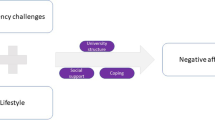Abstract
In our previous publication, we reported a framework to develop an undergraduate cancer research training program at Florida A&M University (FAMU) under the umbrella of the Florida-California Cancer Research, Education, and Engagement (CaRE2) Health Equity Center activity by harnessing the resources available at FAMU, the University of Florida (UF), and the University of Southern California (USC) Cancer Centers. The implementation of the CaRE2 face-to-face training platform was dramatically affected by the COVID-19 pandemic during the summer of 2020 and 2021 training periods. However, a concerted effort was made to restructure the face-to-face training model into virtual and hybrid training methods to maintain the continuity of the program during the pandemic. This article compared the three methods to identify the best platform for training URM students in cancer disparity research. The program’s effectiveness was measured through motivation, experiences, and knowledge gained by trainees during and one year after the completion of the program. The results showed that the participants were highly positive in their feedback about the professional and academic values of the program. Although the virtual and hybrid methods experienced significant challenges during the pandemic, the hybrid training module offered an “above average” effectiveness in performance, like the face-to-face mentoring platform in mentoring URM students in cancer disparity research.

Similar content being viewed by others
Data Availability
The data that support the study are available on request from the corresponding author.
References
NIH National Library of Medicine. Title 1 - improving minority health and reducing health disparities research and education Act of 2000. Public Law 106–525. ncbi.nlm.nih.gov/books/NBK57039/. PLAW-106publ525.pdf (govinfo.gov)
Polite BN, Adams-Campbell LL, Brawley OW, Bickell N, Carethers JM, Flowers CR, Foti M, Gomez SL, Griggs JJ, Lathan CS, Li CI, Lichtenfeld JL, McCaskill-Stevens W, Paskett ED (2017) Charting the future of cancer health disparities research: a position statement from the American Association for Cancer Research, the American Cancer Society, the American Society of Clinical Oncology, and the National Cancer Institute. J Clin Oncol 35(26):3075–3082. https://doi.org/10.1200/JCO.2017.73.6546
Richard McGee, Keller Jill L (2007) Identifying future scientists: predicting persistence into research training. CBE Life Sci Educ 6:316–331. https://doi.org/10.1187/cbe.07-04-0020
Norris KC, Agodoa LY (2005) The need for health professionals and scientists from underrepresented minority and disadvantaged communities. Ethn Dis Summer 15(3 Suppl 4):1–2
AlisonLin, Wallace Tiffany A, Snyder Frederick R (2020) The NCI Center to Reduce Cancer Health Disparities: moving forward to eliminate cancer health disparities and diversify the cancer biomedical workforce. J Nat Med Assoc 112(3):308–314. https://doi.org/10.1016/j.jnma.2020.06.001
Florida-California Health Equity Center. Education – Care2 Center (care2healthequitycenter.org)
Mochona B, Lyon D, Offringa IA et al (2020) Developing a novel framework for an undergraduate cancer research education and engagement program for underrepresented minority students: the Florida-California CaRE2 Research Education Core (REC) Training Program. J Canc Educ 36:914–919. https://doi.org/10.1007/s13187-020-01762-w
Reams RR, Odedina F, Carpten JD, Redda KK et al (2023) Florida-California Cancer Research, Education and Engagement (CaRE2) Health Equity Center: structure, innovations, and initial outcomes. Cancer Control 30:1–14. https://doi.org/10.1177/10732748231197878
Behar-Horenstein LS, Richey J, Parker A, Odedina FT, Askins N (2020) Developmental evaluation model for the Florida-California CaRE2 health equity center. Cancer Epidem Biomar 29(6). https://doi.org/10.1158/1538-7755.Disp19-D031
Coronado Gloria D, O’Connell MA, Anderson J et al (2010) Undergraduate cancer training program for underrepresented students: findings from a minority institution/cancer center partnership. J Cancer Educ 25:32–35. https://doi.org/10.1007/s13187-009-0006-0
Folakemi Odedina, L Behar-Horenstein, P Faith, E Kaninjing, J Nguyen, R Reams, B Mochona, A Ezeani, D Lyon (2020) Improving representation of underrepresented minority students in oncology biomedical research workforce: outcome evaluation from the ReTOOL Program. J Cancer Educ https://doi.org/10.1007/s13187-018-1344-6
Folakemi T. Odedina, RR Reams, E Kaninjing, J Nguyen, B Mochona, DE Lyon, LS Behar-Horenstein (2018) Increasing the representation of minority students in the biomedical workforce: the ReTOOL Program. J Cancer Educ https://doi.org/10.1007/s13187-018-1344-6
Teaching responsible conduct of research. The Lancet 374(9701):1568. https://doi.org/10.1016/S0140-6736(09)61931-0
Christian K (2018) Research integrity and responsible conduct of research: keys to running successful research projects 389–425. https://doi.org/10.1016/C2016-0-04849-0
Hall JM, Szurek SM, Cho H, Guo Yi, Gutter MS, Khalil GE, Licht JD, Shenkman EA (2022) Cancer disparities related to poverty and rurality for 22 top cancers in Florida. Prev Med Rep 29:101922
Hines RB, Johnson AM, Lee E, Erickson S, Rahman SMM (2021) Trends in breast cancer survival by race-ethnicity in Florida, 1990-2015. Cancer Epidemiol, Biomark Prev 30(17):1408–1415
Acknowledgements
We want to acknowledge the CaRE2 mentors’ genuine commitment to training underrepresented minority students.
Funding
This research was made possible by Grant Numbers U54CA233396, U54CA233444, and U54CA233465 from the National Institutes of Health (NIH) and the National Cancer Institute (NCI).
Author information
Authors and Affiliations
Corresponding author
Ethics declarations
Disclaimer
Its contents are solely the authors’ responsibility and do not necessarily represent the official views of the NCI.
Additional information
Publisher's Note
Springer Nature remains neutral with regard to jurisdictional claims in published maps and institutional affiliations.
Supplementary Information
Below is the link to the electronic supplementary material.
Rights and permissions
About this article
Cite this article
Mochona, B., Redda, K.K., Offringa, I.A. et al. Mentoring Minority Cancer Researchers of Tomorrow: Comparison of the Face-to-Face, Virtual, and Hybrid Training Methods of the CaRE2 Summer Cancer Research Education and Training Program. J Canc Educ (2024). https://doi.org/10.1007/s13187-024-02426-9
Accepted:
Published:
DOI: https://doi.org/10.1007/s13187-024-02426-9




